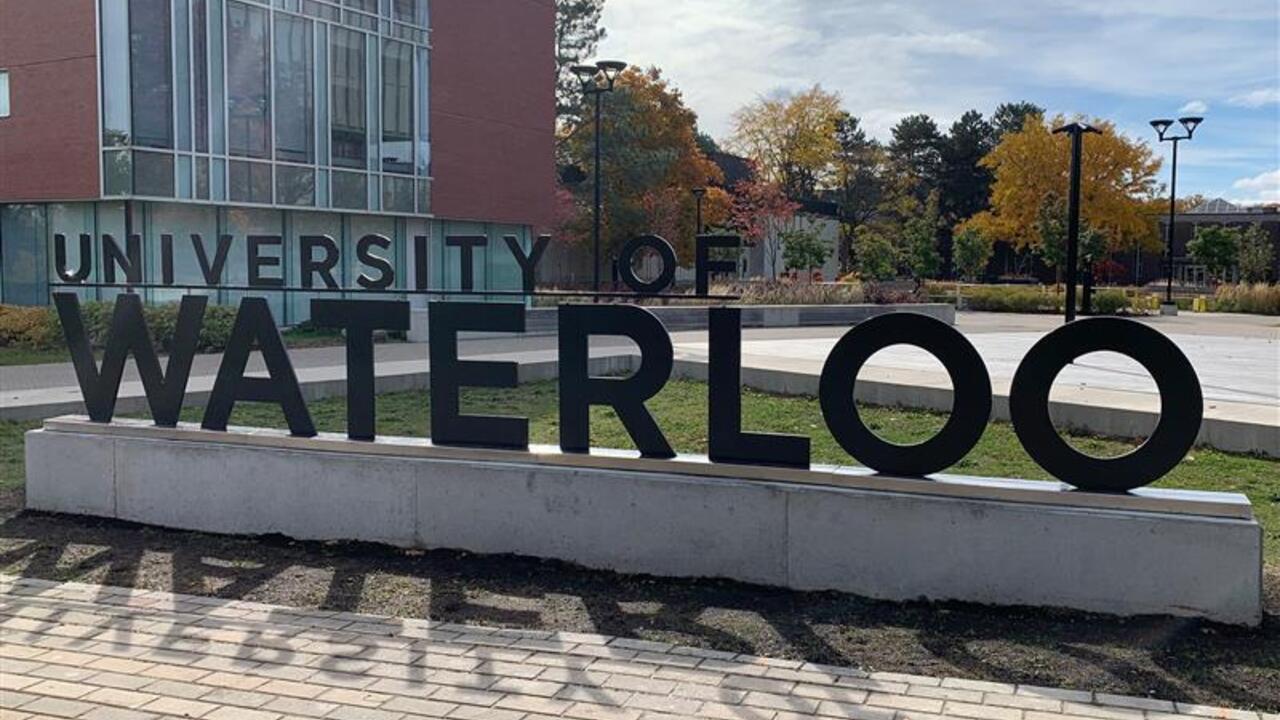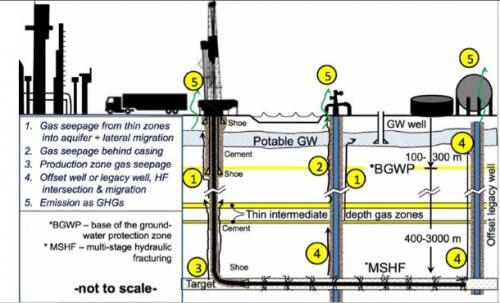
Greenhouse gas, not fracking, is the larger concern in natural resource development
Greenhouse gas emissions are of greater environmental concern than fracking, or hydraulic fracturing, say environmental scientists and engineers.

Greenhouse gas emissions are of greater environmental concern than fracking, or hydraulic fracturing, say environmental scientists and engineers.
By Media RelationsLeakage from oil and natural gas wells and the resulting greenhouse gas emissions present is of greater environmental concern than fracking, or hydraulic fracturing, say environmental scientists and engineers at the University of Waterloo and Geofirma Engineering, Ltd.
“Hydraulic fracturing is not the main risk,” said Maurice Dusseault, a professor of Earth and Environmental Sciences. “The main risk is poor well completion that can cause methane leakage.”
The risks presented by poor well completion can be mitigated with political will from governments and attention from the major natural resource companies. Professor Dusseault is urging that such measures be taken.
Professor Dusseault and his colleagues from Waterloo, Daniel Macdonald and Professor Richard E. Jackson – who works at Geofirma Engineering Ltd. – recently produced a report detailing the risk and exploring solutions.
Methane, a strong greenhouse gas, is not a large public health risk nor is it considered to be a toxic agent by toxicologists. Professor Dusseault emphasizes that methane’s major impact is on climate change.
“I don’t want to raise unreasonable fears,” said Professor Dusseault. “This is not a huge public health issue, but I do not agree with widespread view in the oil and gas industry that the problem can be completely ignored – and (U.S.) President Obama agrees that methane escaping into the atmosphere is not desirable.”

Five ways a well bore can leak. Source: Towards a Road Map for Mitigating the Rates and Occurrences of Long-Term Wellbore Leakage.
Methane from leaking wells can also enter shallow aquifers and cause unpalatable, sour drinking water, something that isn’t toxic, but can be a nuisance and can make the groundwater useless. In rare cases, when seepage accumulates in a closed space, it can also be an explosion hazard, although few cases are known in Canada of this happening.
Professor Dusseault believes that in Alberta and British Columbia, the oil and gas industries are well regulated and do an excellent job compared to almost any other location worldwide. However, he and his colleagues suggest that they could do even better by being proactive in lessening methane gas emissions by ensuring that wells are more leakproof.
“The natural resources industry and government regulatory bodies are developing resources that belong to each province --that is, to you and me,” said Dusseault. “They have a responsibility to act and address these concerns, not just dismiss them. That is not good corporate governance or good government.”
In just half a century, the University of Waterloo, located at the heart of Canada's technology hub, has become one of Canada's leading comprehensive universities with 35,000 full- and part-time students in undergraduate and graduate programs. Waterloo, as home to the world's largest post-secondary co-operative education program, embraces its connections to the world and encourages enterprising partnerships in learning, research and discovery. In the next decade, the university is committed to building a better future for Canada and the world by championing innovation and collaboration to create solutions relevant to the needs of today and tomorrow. For more information about Waterloo, please visit www.uwaterloo.ca.
-30-
Nick Manning
University of Waterloo
519-888-4451
226-929-7627
www.uwaterloo.ca/news
@uWaterlooNews
Attention broadcasters: Waterloo has facilities to provide broadcast quality audio and video feeds with a double-ender studio. Please contact us to book.

Read more
The Future Cities Institute founded by CAIVAN will bring together leading minds from across sectors to solve the most challenging and urgent issues facing global cities.

Read more
The gift comes from two Waterloo alumni with passion and drive to have transformative impact

Read more
University of Waterloo and leading real estate developer The Caivan Group launch the Future Cities Institute
The University of Waterloo acknowledges that much of our work takes place on the traditional territory of the Neutral, Anishinaabeg and Haudenosaunee peoples. Our main campus is situated on the Haldimand Tract, the land granted to the Six Nations that includes six miles on each side of the Grand River. Our active work toward reconciliation takes place across our campuses through research, learning, teaching, and community building, and is co-ordinated within the Office of Indigenous Relations.